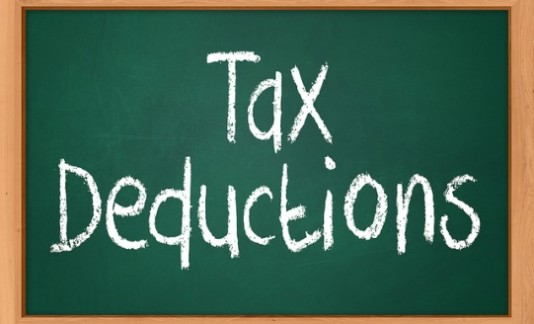
Are bankruptcy fees tax deductible: If you would like a free copy of our eBook: “Cost of Claiming Bankruptcy in Canada” – please CLICK HERE
Thank you for reading our Brandon's Blog. Check out our AI insolvency bot on this page and don't forget to subscribe!
- Are bankruptcy fees tax deductible: Introduction
- Are bankruptcy fees tax deductible: What does Canada Revenue Agency say?
- Are bankruptcy fees tax deductible: Personal bankruptcy and (consumer) proposal restructuring
- Are bankruptcy fees tax deductible: Corporate restructuring
- Are bankruptcy fees tax deductible: Corporate bankruptcy
- Are bankruptcy fees tax deductible: Receivership and secured creditors
- Are bankruptcy fees tax deductible: Purchaser of assets
- Are bankruptcy fees tax deductible: Unsecured creditors
- Are bankruptcy fees tax deductible: Do you need insolvency advice?
Are bankruptcy fees tax deductible: Introduction
We are often asked the question “are bankruptcy fees tax deductible?”. This vlog attempts to answer that question for the various types of Canadian insolvency proceedings.
I caution that we are not income tax advisors; I am a licensed insolvency trustee. This vlog does not attempt to and does not replace expert income tax advice. If you have a specific situation, you should get advice from your professional income tax advisor.
Are bankruptcy fees tax deductible: What does Canada Revenue Agency say?
Costs incurred in a bankruptcy filing can be categorized as either: (i) incurred for the purpose of gaining or producing income from a business or property or; (ii) incurred for capital or non-income earning reasons. Another way of saying it is a taxpayer cannot deduct personal expenses but can deduct those categorized as business expenses. So are bankruptcy fees tax deductible? It depends on who you are.
Are bankruptcy fees tax deductible: Personal bankruptcy and (consumer) proposal restructuring
If you are the individual person who has too much debt and either restructures under one of the proposal provisions to avoid bankruptcy, or goes bankrupt, then your real obligation is not to pay professional fees. Rather, you are making payments to the licensed insolvency trustee in a restructuring to settle all of your debts or you have given up your non-exempt assets and may also be paying part of your monthly income as surplus income to your licensed insolvency trustee.
Under either scenario, the licensed insolvency trustee obtains their fee under the Bankruptcy and Insolvency Act (BIA). You as the individual debtor are not paying bankruptcy expenses to earn income. Therefore you are not entitled to any tax deduction for the amounts and property given to the licensed insolvency trustee.

Are bankruptcy fees tax deductible: Corporate restructuring
Corporations attempt to restructure under either the proposal provisions of the BIA or the restructuring provisions of the Companies’ Creditors Arrangement Act (CCAA) for the purpose of avoiding bankruptcy and the end of its business. The purpose of the restructuring attempt is to stay an active corporation, preserving jobs, continuing to earn income and pay income tax. In this case, professional fees paid to legal and financial advisors would be tax deductible for the company restructuring.
As this vlog is only to answer the questions are professional fees tax deductible, I am not addressing the issue of the income tax treatment of the corporate debt forgiven in a successful restructuring. That is where I turn to professional tax advisors for the answer.
Are bankruptcy fees tax deductible: Corporate bankruptcy
In a corporate bankruptcy, the bankruptcy corporation’s assets would be taken over by the licensed insolvency trustee handling the bankruptcy, subject to the interests of the secured creditor(s) and trust claimants, if any. Therefore, there are no fees paid by the bankrupt corporation for the purpose of earning income. Hence, there is no tax deduction for professional fees to be taken on the bankrupt corporation’s final income tax return.
Are bankruptcy fees tax deductible: Receivership and secured creditors
Receivership is a remedy for secured creditors to enforce security. The secured creditor whose loan is in default, when in a place to enforce its security, appoints a receiver to take possession of the assets, formulate a plan to maximize the sale value, sell the assets and remit the proceeds to the appointing secured creditor, up to the amount outstanding under the security. The company in receivership does not incur professional fees, but the secured creditor does; to both legal counsel and to the receiver. Those professional fees incurred in the normal business of the lender are therefore tax deductible.
I will leave the topic of the income tax consequences for a secured creditor who suffers a shortfall when realizing upon assets covered by its security to the professional tax advisors.

Are bankruptcy fees tax deductible: Purchaser of assets
Many times in corporate restructuring, the restructuring plan calls for the sale of assets. In both bankruptcy and receivership, the assets will be sold. The purchaser of assets will in such cases be a corporation. That purchaser corporation will need insolvency and income tax professional advisors in structuring and paying for the asset purchase. Those professional fees are tax deductible to the purchaser.
Are bankruptcy fees tax deductible: Unsecured creditors
In any of the insolvency processes discussed in this vlog, there will certainly be many unsecured creditors. The major unsecured creditors, especially in corporate insolvency proceedings will want to consult with professional advisors as to their rights and remedies when faced with an insolvent debtor.
Sometimes unsecured creditors make an application to Court to have a Bankruptcy Order made against a debtor. Both legal and trustee advice is necessary.
In either case, the professional fees are paid in the normal course of business and will be tax-deductible.
Are bankruptcy fees tax deductible: Do you need insolvency advice?
If you need insolvency advice, either because you or your company have too much debt, or one of your major customers are experiencing financial problems, the professional fees may very well be tax deductible. The Ira Smith Team acts on behalf of both debtors and creditors. We have successfully restructured many people and corporations, thereby allowing them to avoid bankruptcy. We have also acted on behalf of both secured and unsecured creditors both in an advisory role and an enforcement role.
Contact a debt expert – a professional trustee – who can help get you on solid financial footing Starting Over, Starting Now. Ira Smith Trustee & Receiver Inc. can help keep you from financial ruin with immediate action and the right plan. Call us today for a free, no-obligation consultation.

